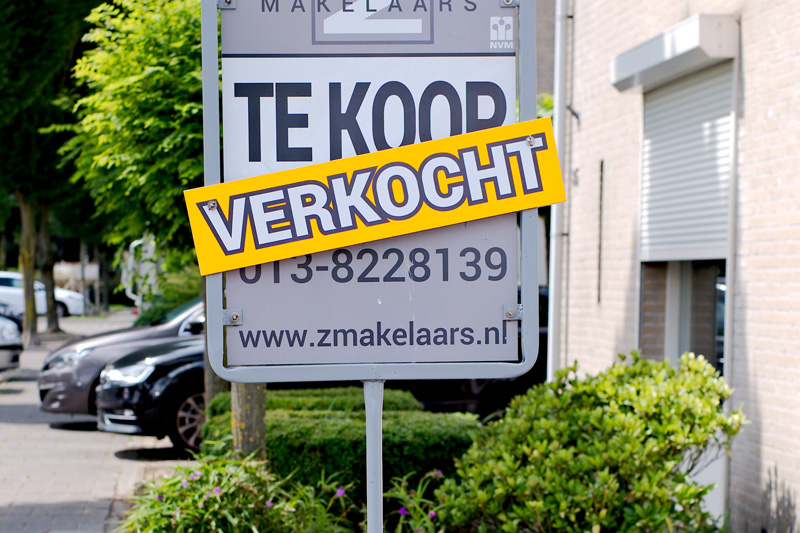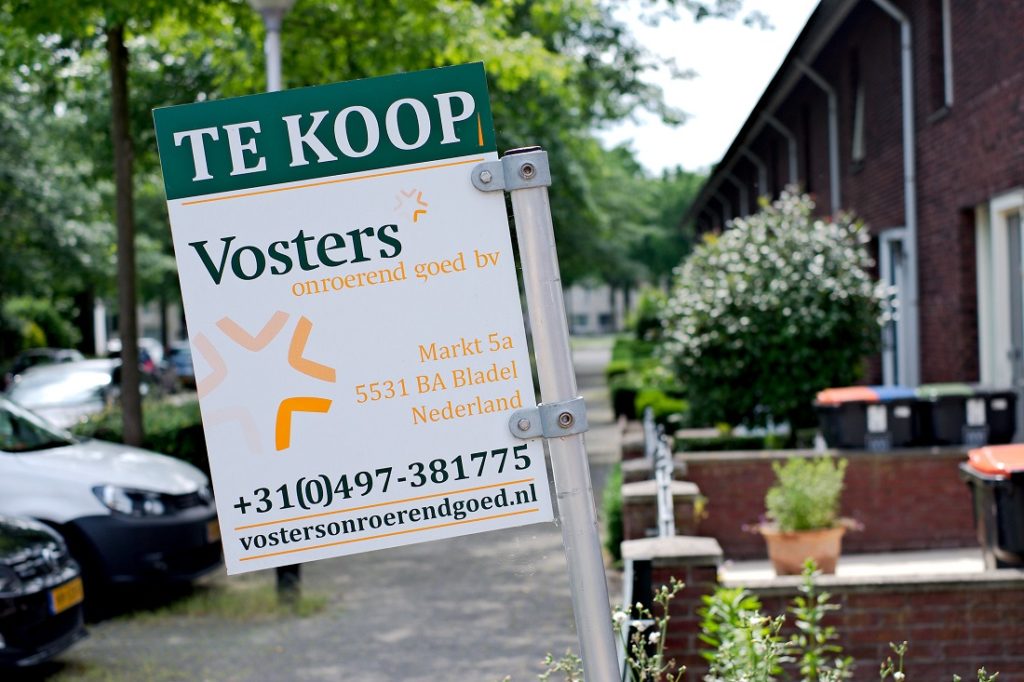Renting, not buying: how the housing market is completely bogged down by failing government policies
The Netherlands is in the middle of a housing crisis that is the result of years of failing government policy. That is the message of social planner Barend Wind. The solution does not lie in simply building more houses; according to Wind, it is time for a systemic change. “I think a revolt against this would be very good.”

It’s strange really that the Malieveld is never full of house hunters. Open a news site and it’s about the extremely rising house prices, huge shortages of social housing or about starters (and divorcees) who have no chance on the sales and rental housing market.
Social planner Barend Wind is also surprised that the Dutch are so tame when it comes to this problem. “Are we docile or incredibly conservative? I’m uncertain about one or the other. Because, if you’re at a party, or sitting in an outdoor café at 1.5 meteres, this is what it’s all about. I think a revolt against this would be very good.”
Five years ago, Wind received his PhD from Tilburg University for research (Dutch only) in which he compared the Dutch housing policy with other European countries. He is still involved with housing issues on a daily basis, as a lecturer in Social Planning at the University of Groningen and as a strategic advisor to an Amsterdam housing corporation.
What is going on in the housing market?
“The main problem is that housing is not affordable. We tend to say that there is a housing shortage and that’s true, there is a shortage of housing, but we are selling this issue short by only pointing to that shortage. I would say it’s a housing crisis. Because the housing that is already there, it is too expensive.
“Particularly political parties on the right, such as the VVD and D66 focus very much on building additional houses, a very easy frame. There are too few houses, supply and demand do not meet, and therefore, the price is too high. That is really a false assumption. I hope that I can put an end to that. Those high prices of the existing housing stock are a result of years of wrong policies.”
Explain…
“A major cause of the housing shortage is that social renting has been slowly eroded over the past thirty years. Housing corporations faced financial difficulties due to measures such as the landlord levy and an increase in corporate tax, as well as lowering the income threshold and reducing the target group.
“To keep their heads above water they put part of their housing stock up for sale, with the result that that sector has shrunk considerably. In Amsterdam, you now have to wait more than fifteen years before it is your turn. In other major cities, things are moving in the same direction.
“In the past, anyone could rent from a housing corporation. Neighborhoods with a lot of social housing were often fairly mixed. Nowadays, only people with very low incomes can go there.”
The reason for many first-time buyers to prefer to buy right away. Due to the skyrocketing housing prices, this is not easy these days. How did this situation come about?
“Since the 1980s, our government has been promoting home ownership. That came over from the Anglo-Saxon world, with the underlying idea that buyers would be more responsible and better citizens. After all, by taking out a mortgage, they have a stake in the system.
“It ended up being a great success. Initially, those owner-occupied homes were also very affordable and subsidized. However, a very simple rule shows: the higher the amount people can borrow, the more they will spend on their mortgage. And the more prices will rise. That is exactly what has happened over the last 30 years.
“Because of more generous mortgage standards and government measures, such as the mortgage interest deduction, the tax-free gift, and the one-time exemption from transfer tax, people were able to borrow more and more. The result: housing prices rose further and further.”
The former ideal of owning one’s own home is unattainable for more and more people?
“True. The fastest growing segment in the current Dutch housing market is no longer the owner-occupied sector, no matter how much the government has wanted to encourage it, but the private rental sector.

“The large group of homeowners who bought at a good time and are therefore very wealthy, went looking for returns because of the low interest rates. Real estate is seen as a stable investment, so they have dived massively into those rental properties.
“Housing seekers who can’t get a mortgage of 900 euros, because they don’t have a permanent contract or have too low an income, for example, can rent that same house for 1300 euros. That too is the result of (failing) government policy.”
What do you mean by that?
“We are now tempted to think that the free sector is a natural state of the housing market, but it is not. The fact is that this free rental sector has only existed since 1993. Before that, all rents were regulated with the point system.
“That system now applies only to social housing with a maximum rent of 752 euros. Above that, the market determines the price. Well, you can’t find homes of 754 euros though. There is a huge gap above that.”
What is the distribution of rental and owner-occupied housing currently in the Netherlands?
“The social rental sector, meanwhile, constitutes less than 30 percent of the entire housing stock. The vast majority, about 60 percent, is owner-occupied and 10 percent is private rent. It does look different in the cities compared to the countryside.”
And has this picture changed much in recent years?
“Changes in the housing stock happen very slowly, but recently I was looking at figures of the number of new moves in Amsterdam. I was shocked to see those figures. And exemplary for what is happening now.
“Of the people who moved to or within Amsterdam in 2009, 36 percent went to an owner-occupied home, in 2019 that was only 23 percent. That owner-occupied housing has become so expensive that hardly anyone can afford it anymore. In the same year, 41 percent moved into a housing corporation apartment, ten years later only 29 percent. Also a huge decline.
“If we then zoom in on the private rental sector we see that in 2009, 21 percent moved into a private rental home. This share rose to 47 percent in 2019.
“So almost half of the people who move into a new home in Amsterdam end up in a private rental home. And among young people this is much, much higher.”
How do you estimate the chances of young people who will soon be looking for independent housing?
“It depends on whether they can find a sugar mommy or daddy. If you have that, you’re out of the woods. And should you enjoy starting a residential group in Delfzijl, the world is at your feet, too.
“If you are looking for a job in one of the larger cities, your chances of getting an owner-occupied property are very small and social housing is absent. You’ll probably have to do house sharing or rent a very expensive rental property. It’s a bleak picture.”
Are young people the biggest losers in this story?
“The housing market crisis has mainly losers, except for the big investors who can make a profit on the rental and resale of homes. People with their own homes are also finding it harder to move because they will have to buy another very expensive home.
“Ultimately, this situation is bad for our entire economy. If we all have to spend a lot of money on housing, we spend a smaller and smaller part of our income on consumption. If we spend less at the bakery, bike shop, or restaurant, that will result in fewer jobs in the long run.”
You are dealing with this issue day in and day out; does the situation sometimes make you despondent too?
“I find it incredibly frustrating how the housing market is being thought about. Is there any reflection going on, I sometimes ask myself? To come to the conclusion: yes, but from a different ideological frame.”
How do we get out of this deadlock?
“Part of the key lies in the region, where land prices are lower and where there is more space. Make places like Assen, Den Helder, Emmen, and Venlo more attractive. Those are places where you can live very nicely, at least if you have work there.
“Another simple solution: regulate free-sector rentals again. Apply the point system to all rental properties. You have a certain quality home and you pay for it. The beauty of it is also that you provide incentives for landlords to do something about their properties.
“There’s so much you can do: appoint a minister of spatial planning and give him/her real power to build. Specify what will be built, so that it’s not just expensive housing. Abolish the landlord levy and exempt housing corporations from corporate tax, so they too can start building more housing. Abolish the mortgage interest deduction and further tighten lending standards to stop rising housing prices.
“Furthermore, I am pinning my hopes on the sustainability transition that is coming. There are many bad houses in the Netherlands, and generally the losers of the housing crisis live there. By properly insulating those homes, putting solar panels on them, or if necessary, demolishing them to make way for sustainable new housing, you could really make a difference. Regarding the climate issue and in solving the housing crisis.”






